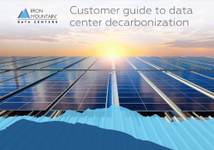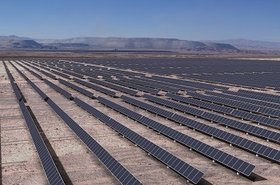In today's interconnected world, data centers have become essential infrastructure that supports many critical functions of our daily lives. However, this dependence on data centers has also shone a light on the importance of sustainable energy procurement within the industry.
As the energy requirements of data centers continue to increase, it is essential to adopt responsible energy-sourcing strategies that maximize efficiency and minimize environmental impact. But it’s not as simple as it might seem.
Purchasing energy for the data center industry is a complex process that involves various factors, such as location, energy consumption, and regulatory requirements. It is also crucial to ensure that the energy source is dependable and capable of meeting the uninterrupted 24/7 power demands of a data center.
When it comes to choosing an energy supplier for a data center, there are several key factors to consider. One of the most important is the environmental impact of the energy source. Different types of sustainable energy have different 'shades' of green, and it's important to look beyond just the carbon emissions.
For example, biomass and nuclear energy may not produce carbon emissions directly, but they can have negative impacts on the environment in other ways such as other by-products. In contrast, hydro, solar, and tidal energy are often considered the most sustainable options available.
Another consideration is the commercial viability of the energy supplier. This includes the cost of the energy as well as any necessary infrastructure, such as transmission lines. Data centers need to ensure that the energy supplier can provide power at a cost that makes sense for their business. It's also important to consider factors such as the supplier's reputation for reliability and the terms of their contract.
Furthermore, data centers should ensure that any benefits from sustainable energy procurement are passed on to their customers in the form of lower prices or improved services. Procuring energy from sustainable sources improves corporate image as well as attract and retain customers.
Lastly, data centers need to verify the origin of the energy they are using. The Renewable Energy Guarantee of Origin (REGO) certification verifies that the energy being used is truly renewable and sustainable. Checking the energy company's annual fuel mix report can help operators make informed decisions about which energy suppliers align with their own sustainability goals.
The good news is that there is plenty of innovation happening in the energy industry. For example, Power Purchase Agreements (PPAs) are becoming increasingly popular – aiding the procurement of sustainable energy for the long-term. These agreements involve data center companies committing to buy a certain amount of energy over a set period of time.
This assists with financing of new renewable projects, increasing the availability of renewable energy on the market, and supports the growth of sustainable energy generation.
It's also important to note that energy procurement has come a long way in the past decade. Ten years ago, there wasn't as much interest in green energy, and it wasn't as commercially viable. However, as more and more companies and individuals prioritize sustainability, it makes more sense for energy companies to invest in and produce renewable energy – and this means that data center providers have the opportunity to access more sustainable energy options at competitive prices, which benefits the environment, businesses, and providers.
Indeed, the cost of renewable energy is decreasing as technology improves and economies of scale are reached. This is making it increasingly competitive with traditional fossil fuel sources, making it a more viable option for data center providers to consider when making energy procurement decisions. As the demand for renewable energy continues to grow, it's likely that we will see even more innovation in this area and possibly even lower costs for data center providers in the future.
Practical strategies for successful procurement
After understanding the key factors involved in procuring energy for your data center, there are some practical tips you can follow to help ensure that you are getting the procurement process right.
First, you should understand your energy consumption, not only in terms of how much energy you need, but also when you need it. This will help you identify the best energy source for your needs, as well as any potential opportunities for energy efficiency.
Next, it's important to assess your location, as this can have a significant impact on the cost and availability of energy. If you're located in an area with high levels of renewable energy, for example, it may be more cost-effective and sustainable to source your energy from local renewable sources.
After assessing your energy needs and location, you should conduct a thorough evaluation of different energy suppliers. This includes researching their prices, contracts, and environmental impact to identify the most cost-effective and sustainable option for your data center. Once you have identified the best energy supplier for your needs, negotiate a contract that works for you, which may include a PPA.
Finally, it's important to continuously monitor and review your energy consumption and supplier performance. Energy procurement is not a one-time process, and regularly reviewing your contract and renegotiating as necessary will help ensure that you are getting the best deal possible. By following these practical tips, you can improve the effectiveness and efficiency of your energy procurement process.





